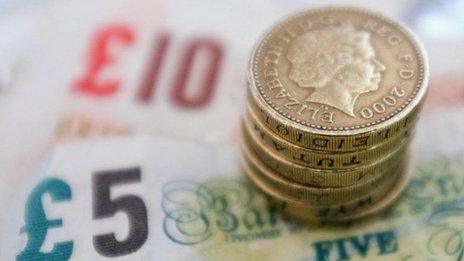Budget 2014: Tax avoidance schemes face early payment
- Published

Firms and individuals wrangling with the UK tax office over their use of tax avoidance schemes will have to pay the disputed sum to the government.
Those using the schemes will get their money back, with interest, if they win, Chancellor George Osborne has announced.
HM Revenue & Customs (HMRC) will also be able to directly seize money owed from bank accounts.
In total, the new tax rules may recoup £385m in 2015.
"While the vast majority of wealthy people pay their taxes, there is still a small minority who do not,' said Mr Osborne.
"We will now require those who have signed up to disclosed tax avoidance schemes to pay their taxes, like everyone else, up front."
The chancellor also said the government would seek to stop companies cutting their tax bill by moving money between their subsidiaries.
"These payments will be disregarded for tax purposes, and companies will pay tax on profits generated in the UK," the Budget document said.
Mr Osborne expects to recover £290m in the 2015 financial year and £1.23bn the year after by forcing those using registered tax avoidance schemes to pay disputed money to the state.
The government is trying to prevent those who HMRC thinks owe tax from entering into lengthy appeals processes to try to hold onto the money for longer, said John Cullinane, a tax partner at accountants Deloitte.
They are "trying to avoid the cashflow advantage" of allowing someone to keep disputed money, he said. If the amount is large enough, there can be considerable interest payable from keeping it for longer, he said, "if you keep appealing".
Mr Osborne also cut the threshold for companies having to pay 15% stamp duty on home purchases from £2m to £500,000.
"Many of these are empty properties held in corporate envelopes to avoid stamp duty," Mr Osborne said. "This abuse will end.''